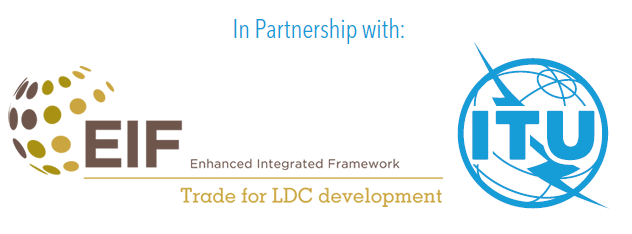3.7 Europe
All practices include access to digital skills. Two (out of four) combine this policy area with access to digital technology and with entrepreneurship and leadership. Two out of four practices target women and girls and/or gender equality, specifically.
Table 8: Access to digital skill, technology, inclusion, entrepreneurship, infrastructure and services (Europe)
| Practice | Access to digital technology | Access to digital skills | Financial inclusion | Entrepreneurship and leadership | Access to infrastructure and digital services |
| #eSkills4Girls (Germany) | X | X | X | ||
| Systematic promotion and support of women in STEM is by a public university (Montenegro) | X | ||||
| Advancing the introduction of digital skills in the education system (Serbia) | X | ||||
| Health Tech Lab (Serbia) | X | X |
Practices are aligned with national strategic documents. #eSkills4Girls is part of the Federal Government implementation strategy “Shaping Digitalization” and of the Federal Ministry Digital Strategy. Gender representation in STEM areas is addressed by the Development Strategy of University of Montenegro. And the Serbian Plan for Empowerment of Women in ICT 2019-2020 includes training on “programming, project management and digital entrepreneurship”.
Key highlights
Activities
| Programming and informatics and computer science compulsory courses. | |
| Promotion of digital skills and integration of ICT in gender responsive vocational training and non-formal education as well as entrepreneurship, and leadership. | |
| Awareness-raising and promotion of female role models. | |
| Open science days and project competitions in the area of STEM. | |
| Connection to local tech ecosystems: tech meetups, conferences, workshops, start-up competitions and acceleration programmes |
Resources
| Joint statement with “like minded” countries on digital gender equality objectives. | |
| Schools connected to a free, secure academic Internet network (offering access to educational content and the ability to block sites with harmful content). | |
| Support from international experts requested. |
Collaboration and partnerships
| Stakeholders: Federal Ministry for Economic Cooperation and Development (BMZ); academia; Ministry of Education; private sector. | |
| Collaboration with initiatives at the multilateral level such as the Global Partnership for Gender Equality in the Digital Age (EQUALS). | |
| Collaboration at the bilateral level, with governments of countries interested in implementing similar projects/programmes. | |
| Cooperation with private sector and NGOs. |
#eSkills4Girls (Germany) With a joint statement on #eSkills4Girls published at the G20 summit in Hamburg in 2017, the Heads of State and Government of the G20 member states agreed to take action to close the gender digital divide. Since Germany’s G20 presidency in 2017, the Federal Ministry for Economic Cooperation and Development (BMZ) works on this initiative to globally increase women’s and girls’ access to and participation in the digital world and to boost relevant education and employment opportunities in emerging and developing countries. #eSkills4Girls corresponds to Germany’s development policy by promoting gender equality in the digital age. It is part of the Federal Government implementation strategy “Shaping Digitalization” and of the Federal Ministry’s Digital Strategy. #eSkills4Girls focuses on three pillars of digital inclusion for gender equality, namely the promotion of digital skills and the integration of ICT in gender responsive vocational training and non-formal education as well as entrepreneurship, and leadership. BMZ implements numerous activities under the framework of the initiative #eSkills4Girls, which are the result of the collaboration between governments, private sector, academia and civil society organizations. The initiative is implemented on three levels: (1) Bilaterally at project level (e.g., #eSkills4Girls projects launched in Cameroon, Ghana, Morocco, Mozambique, Nigeria, Rwanda, Zambia and South Africa), (2) Multilaterally through work in the Global Partnership for Gender Equality in the Digital Age (EQUALS), and (3) through cooperation with the private sector and NGOs. #eSkills4Girls raises awareness and promotes female role models.
Promotion and support of women in STEM is by a public university (Montenegro).54 Gender representation in STEM areas is addressed by the Development Strategy of University of Montenegro. Science is promoted through Open Science Days and through project competitions organised annually.
Advancing digital skills in the education system (Serbia).55 Programming is taught in all primary schools, and informatics and computer science was made compulsory in secondary schools. Efforts are made to ensure digital literacy, including experimenting with digital textbooks and equipping classrooms with digital equipment and materials. Schools being connected to a free, secure academic Internet network, which includes access to educational content and the ability to block sites with harmful content. The Serbian Plan for Empowerment of Women in ICT 2019-2020 includes training on “programming, project management and digital entrepreneurship”.
The Health Tech Lab (Serbia) is a health-tech ecosystem with the objective to create a global network of the local health-tech ecosystems collaborating for impact.56 It organizes heath-tech meetups, conferences, workshops, start-up competitions and acceleration programmes in order to foster the health tech-ecosystem. Health Tech Lab is a private initiative and non-governmental organization supported by an international Advisory Board of international experts from Israel, Serbia, United Kingdom, United States, and the European Union. Its partners and network are considered as one of the biggest assets.

